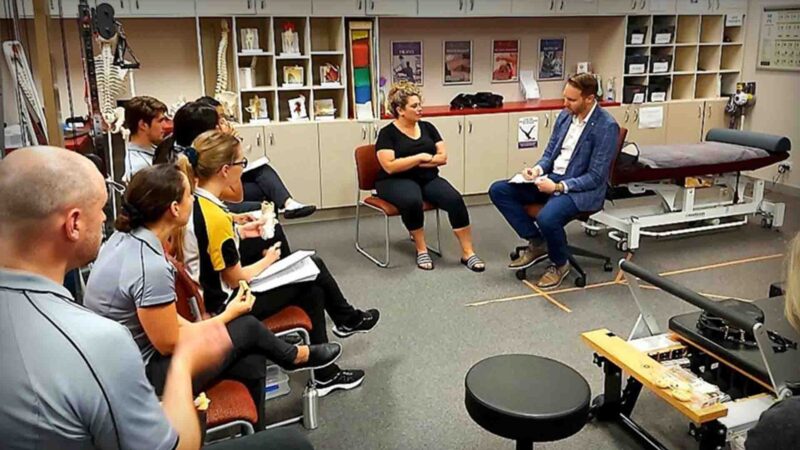THE DESIRE FOR PRIMARY CARE NURSES TO DO MORE, BE RECOGNISED AND VALUED FOR THE WORK THEY DO
With
Denise Lyons
Nurse Practitioner, Newcastle, NSW &
President, Australian Primary Health Care Nurses Association (APNA)
PEOPLE IN HEALTH CARE SEGMENT
Filmed in Newcastle, NSW | August 2025
Denise Lyons is a highly experienced nurse with over 40 years in the profession, including more than 25 years dedicated to primary care. She earned her Bachelor of Science in Nursing in the United States in 1985 and, in 2012, became an endorsed Nurse Practitioner in Australia. Currently, she serves as a primary care Nurse Practitioner in General Practice in Newcastle, where she is committed to delivering high-quality, patient-centred care that improves the health and wellbeing of her community.
Throughout her career, Denise has championed the vital role of nurses in primary health care. Her professional journey spans clinical practice, leadership, and policy, with a strong focus on innovation and equity in health service delivery. Passionate about excellence in primary care, she has contributed extensively to advancing the profession through leadership, mentoring, and advocacy.
As an elected Board Director, and now President of the Australian Primary Health Care Nurses Association (APNA), Denise is dedicated to strengthening the voice of primary health care nurses nationwide. She advocates for best practice, professional recognition, and sustainable models of care. Known for her collaborative leadership and strategic vision, Denise is committed to shaping a strong future for nursing and primary health care in Australia.
About APNA
The Australian Primary Health Care Nurses Association (APNA) is the peak body and professional membership association for all nurses working outside of a hospital setting in Australia. APNA champions the role of primary health care nurses; to advance professional recognition, ensure workforce sustainability, nurture leadership in health, and optimise the role of nurses in patient-centred care.
APNA represents a significant and rapidly expanding workforce; primary health care nurses account for around one in eight of the 640,000 registered health professionals in Australia.
Source: Supplied and from Australian Primary Health Care Nurses Association (APNA) website
You Might also like
-
Job-ready clinical trial interns
The Victorian Comprehensive Cancer Centre Alliance, or VCCC Alliance for short, is a Victorian partnership of 10 research, academic and clinical institutions looking at improving cancer outcomes for patients.
The VCCC Alliance SKILLED clinical trial internships program is a pathway for scientists to build role-specific clinical trial knowledge, experience and in a clinical trials unit through theoretical and on-the-job training. The internship program is a 40 week intensive program to get science student interns job ready for clinical trial assistant and study coordinator internship roles.
-
Gavin Fox-Smith talks Medical Technology
Former Johnson & Johnson ANZ Managing Director, Gavin Fox-Smith on working in large & small MedTech companies
-
Specialist physiotherapist successfully mixes online & in-person
Dr. Kieran Richardson (FACP) is a Specialist Physiotherapist, conferred by the Australian College of Physiotherapists (Australian Physiotherapy Association) in 2016. Dr Richardson is the Director of Global Specialist Physiotherapy, a consultancy company providing online Formal Mentoring and Professional Development individual clinicians, clinics, and groups, as well as Second Opinions to clinicians and directly to patients all around the world.



